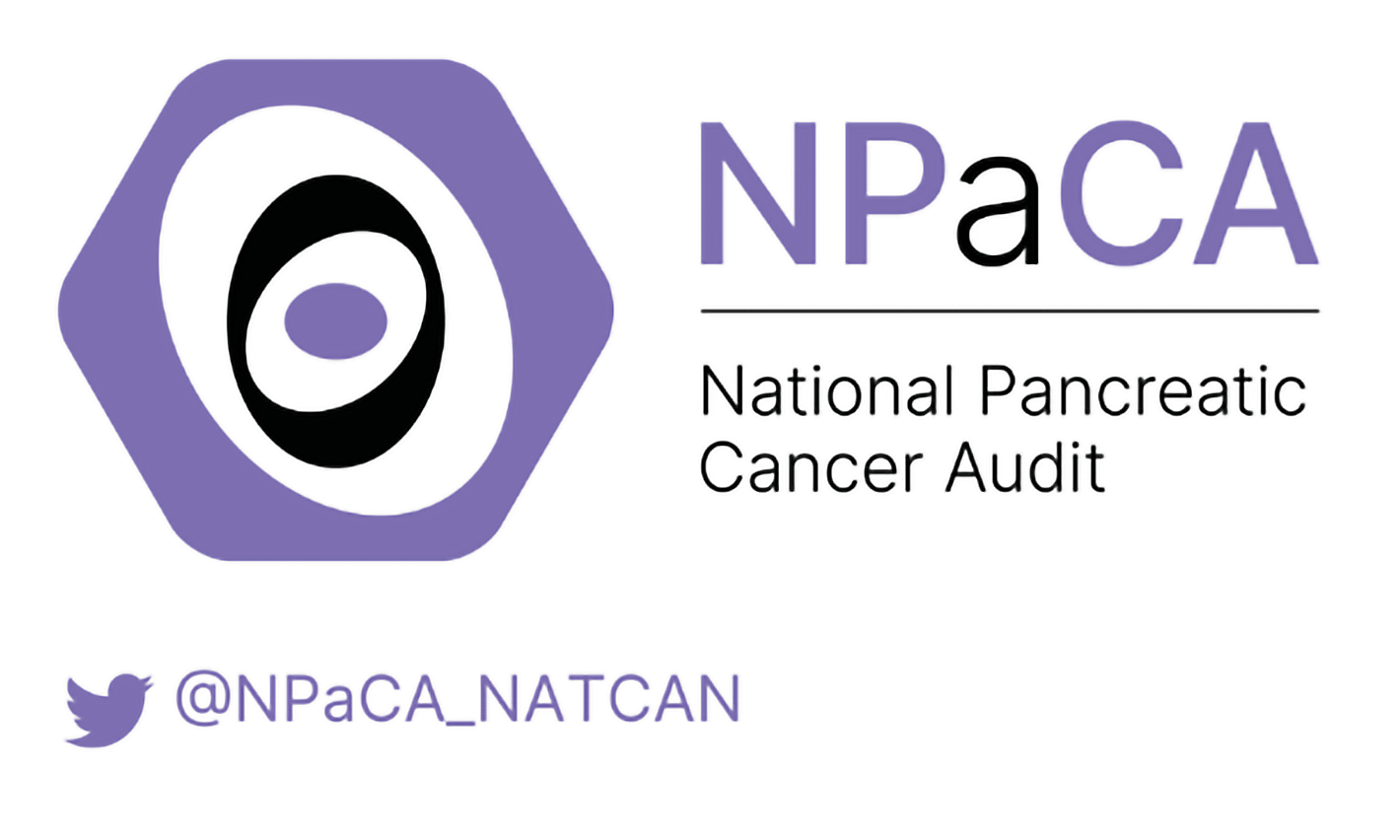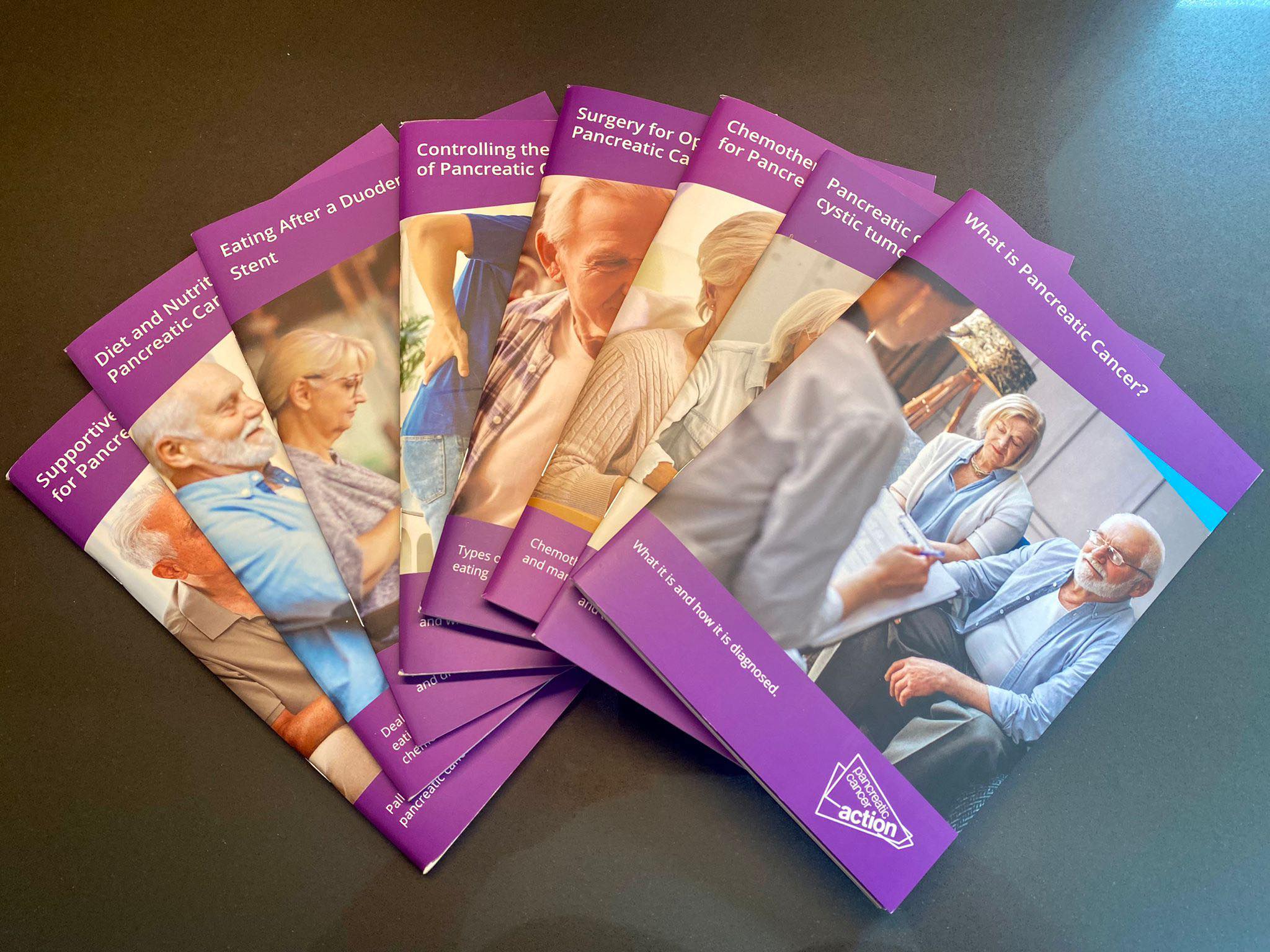The National Pancreatic Cancer Audit in England and Wales
It has been an ambition of mine and PCA to have an audit of pancreatic cancer diagnosis and treatments for many years. It was even included as a recommendation in the PCA election manifesto in 2015 – almost 10 years ago!

So, you can imagine our delight when, following months of discussions with the National Cancer Board and feeding in information to the Pancreatic Cancer Tumour Site Review in 2022, we heard that an audit was to be commissioned into pancreatic cancer care, diagnosis, and treatments by The National Cancer Audit Collaborating Centre.
The fundamental aim of the audit is to collate extensive real-world information on patients diagnosed with pancreatic cancer. This includes demographic information, diagnostic pathways, treatment modalities, and outcomes from databases across England and Wales. This allows direct comparisons of diagnosis and treatments across the region to inform where there is good practice and where there are shortfalls identifying trends, disparities and areas that need addressing to improve outcomes for patients.
Following a feasibility study in 2022, which PCA fed into, the following priorities of care were identified and incorporated into a scoping document in July 2023:
- Route to diagnosis & treatment
- Diagnosis process
- Multi-Disciplinary Team (MDT) and Staging
- Potentially curative treatments
- Non-curative treatments
- Relieving biliary and duodenal obstruction
- Other supportive care

While one of the primary goals of the audit is to benchmark healthcare providers against national standards, the audit will also delve into the patient experience, capturing valuable insights into the challenges faced by individuals diagnosed with pancreatic cancer. Survivorship and quality of life outcomes will also be assessed, providing a holistic view of the impact of pancreatic cancer care on patients.
The Team at the National Pancreatic Cancer Audit are very keen to include the views of patients and carers as the audit develops. We at PCA have been heavily involved in shaping Public Patient Involvement (PPI), recruiting those who have had direct experience with pancreatic cancer, whether they be a patient or carer. The first members have been recruited, and the first PPI Forum will be held in February 2024.
We will always need more patient views to inform the audit, so if you would like to be a part of this, do get in touch with Heather Archbold at heather@panact.org, who will be able to explain the process of how to get involved.
So, what do we hope the audit will deliver?
The audit will also be instrumental in identifying any existing disparities/inequalities in access to care, treatment outcomes, and survival rates among different demographic groups across different regions. Currently, much of this information is patchy, so collating this information across England and Wales will be crucial for implementing targeted interventions to address healthcare inequalities and improve overall equity in pancreatic cancer care.
As the majority of patients are diagnosed late, early detection is a significant factor in improving pancreatic cancer survival rates. We hope that the audit’s findings will contribute to the development of improved diagnostic methods and diagnostic pathways, enabling diagnosis at an earlier stage to improve the chances of early interventions, leading to improved outcomes.
We hope the insights gained from the audit will lead to the development of updated and evidence-based treatment and diagnostic guidelines for pancreatic cancer. We also hope it will help streamline and optimise multidisciplinary care approaches, ensuring that patients receive comprehensive and coordinated treatment plans no matter where they live.
We also hope that policymakers and politicians will be able to leverage the audit’s findings to inform and shape healthcare policies related to pancreatic cancer. This may include allocating resources, developing targeted interventions, and implementing measures to reduce healthcare disparities. PCA is very active in this area, and we will continue to campaign to improve outcomes for patients. We hope the extensive data collection will be able to help inform our campaigns.
The long-awaited National Pancreatic Cancer Audit in England and Wales will stand as a pivotal initiative to improve the diagnosis and treatment of pancreatic cancer. By collecting and analysing comprehensive data, this audit will not only provide a snapshot of the current state of pancreatic cancer care but will also serve as a catalyst for positive change. The insights gained should have the potential to reshape treatment guidelines, improve early detection strategies, and ultimately enhance the lives of those affected by this challenging disease. As the audit continues to evolve, its impact on pancreatic cancer care in England and Wales will hopefully be a beacon of hope for patients and healthcare professionals alike.
We at PCA will continue to be involved, and I have a personal interest as a former patient and Founder of PCA to be a part of the process. We will keep you updated with any developments along the way.
Ali Stunt
Founder
Pancreatic Cancer Action